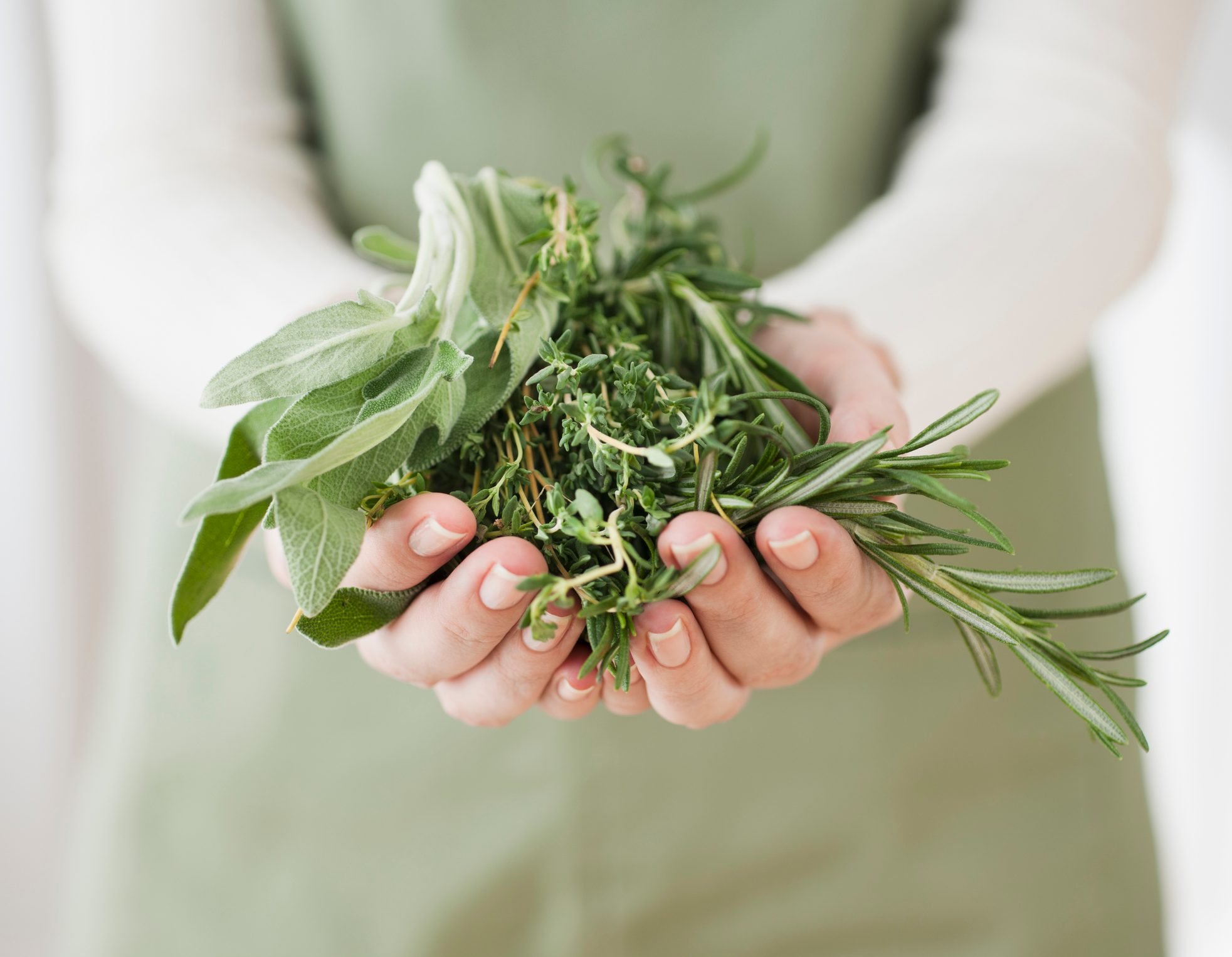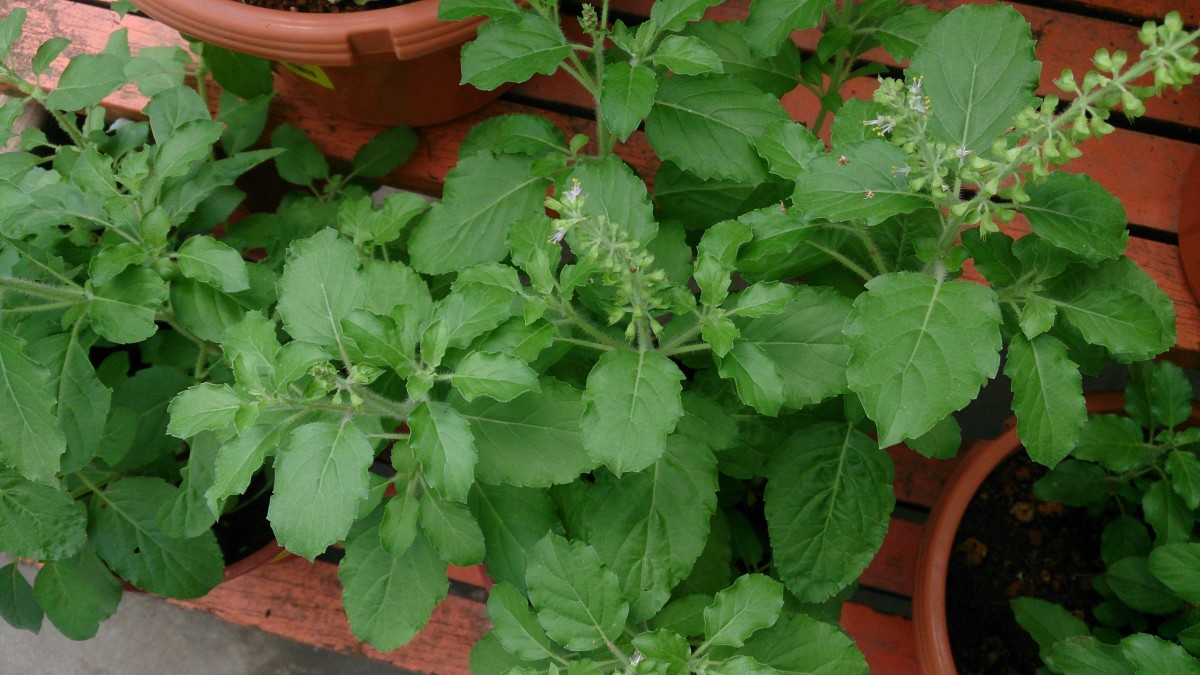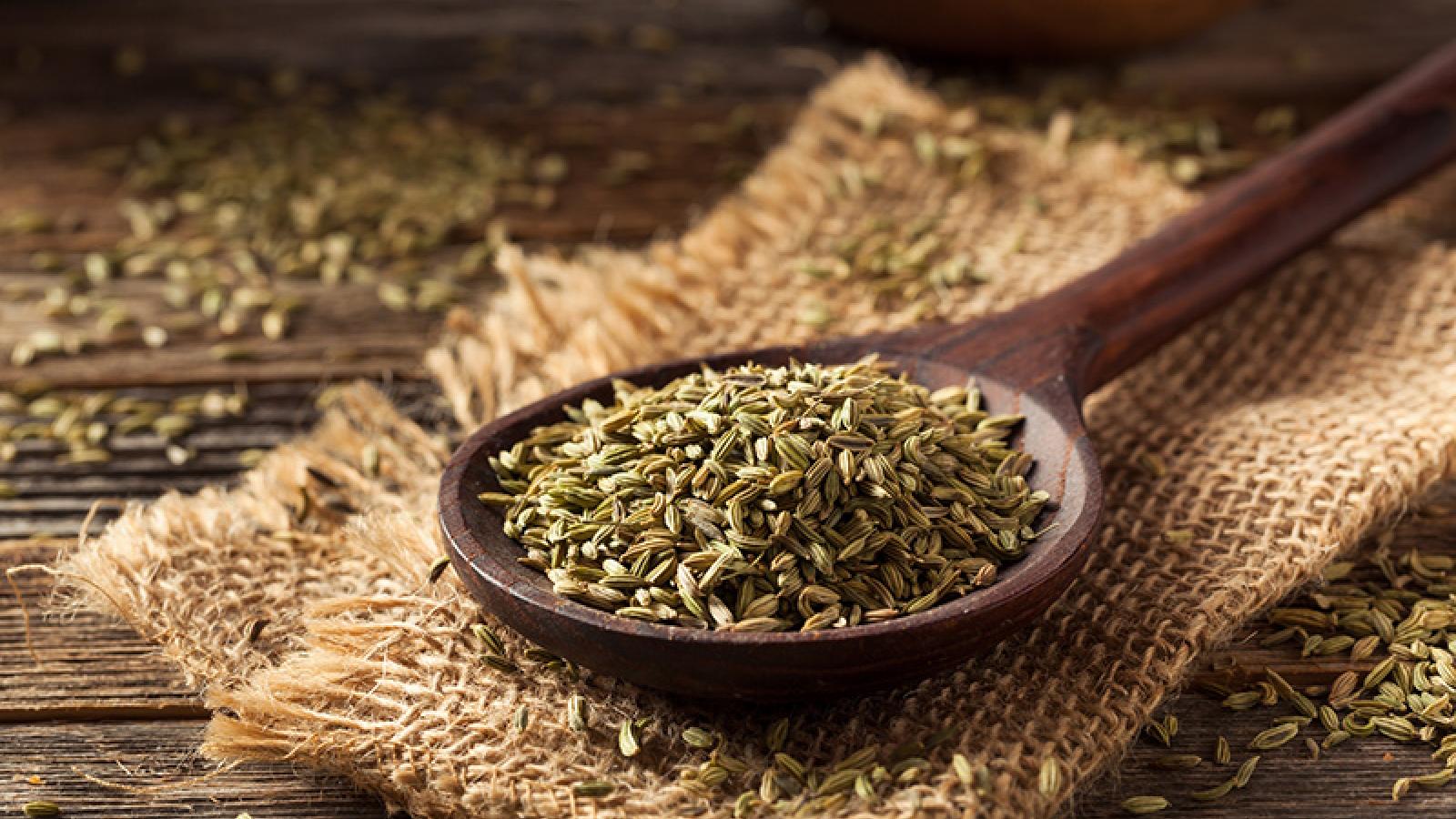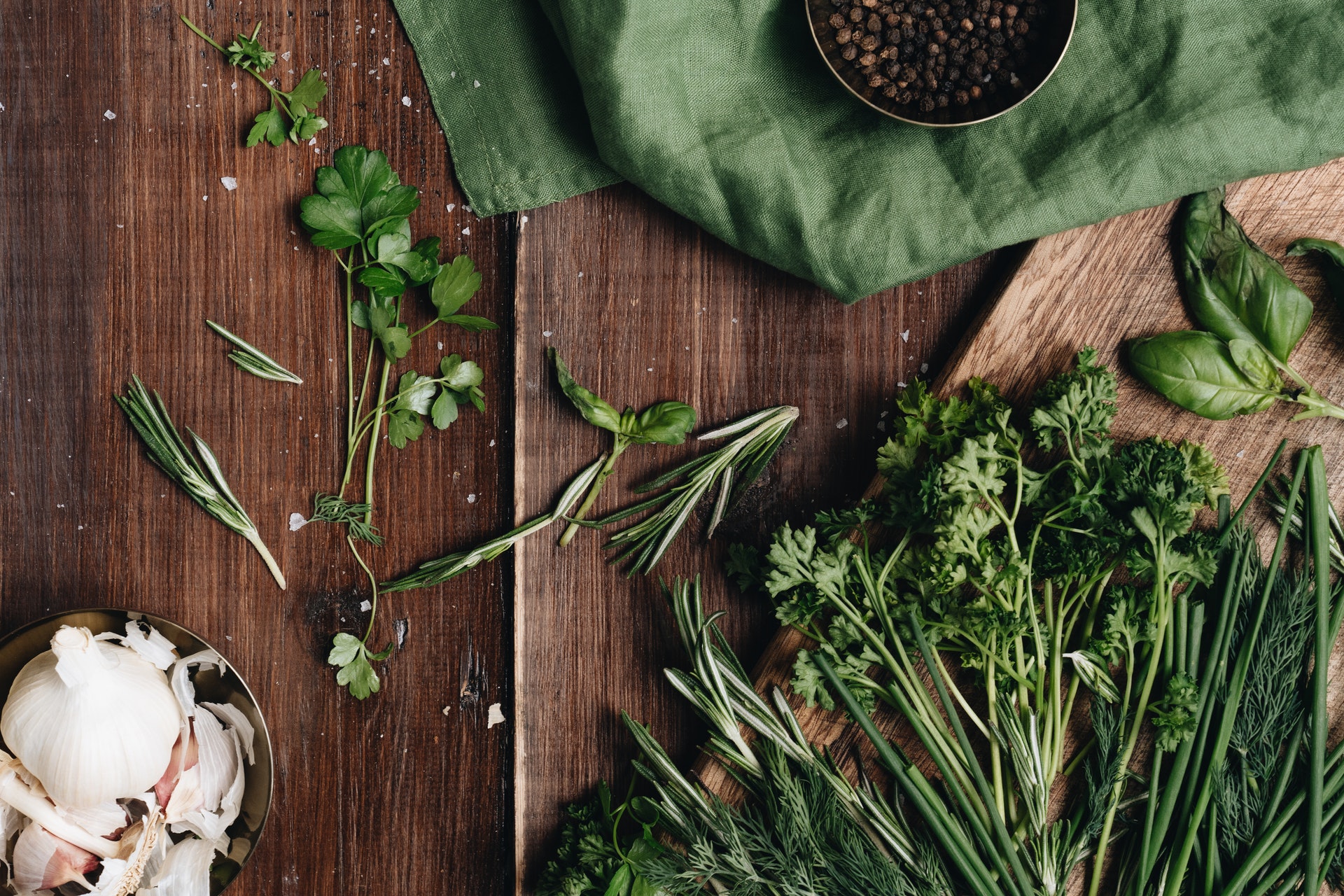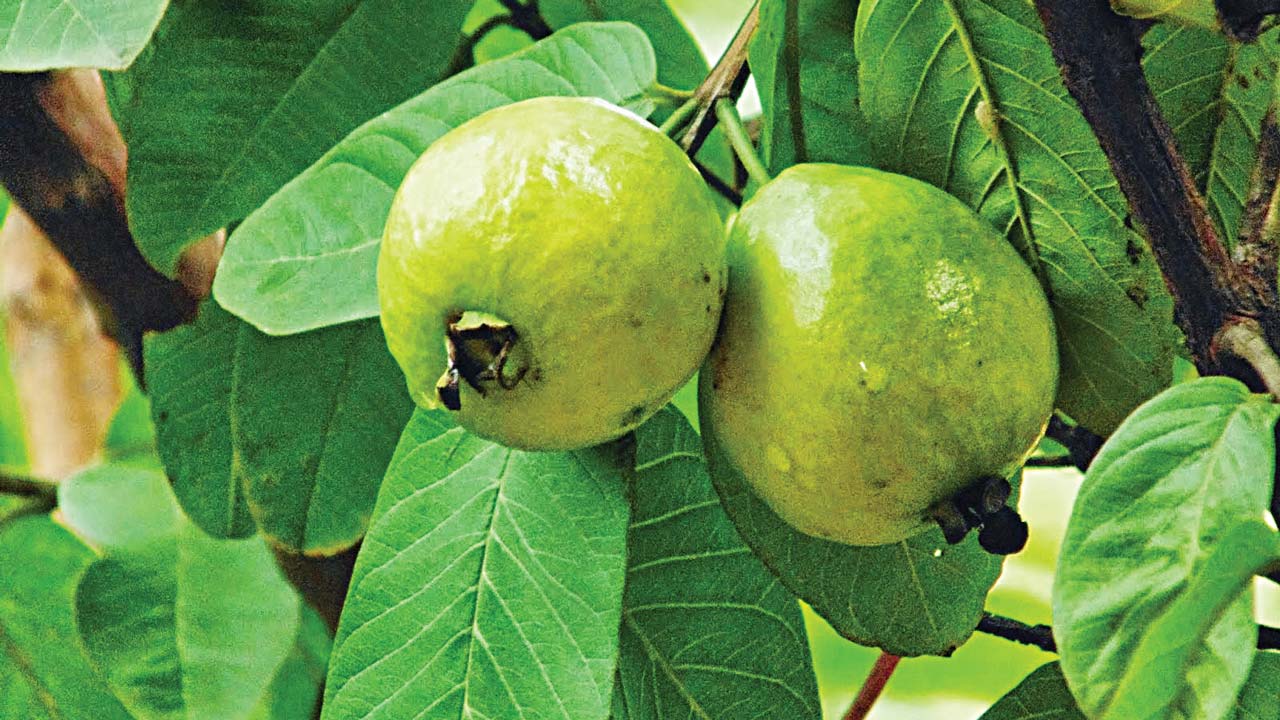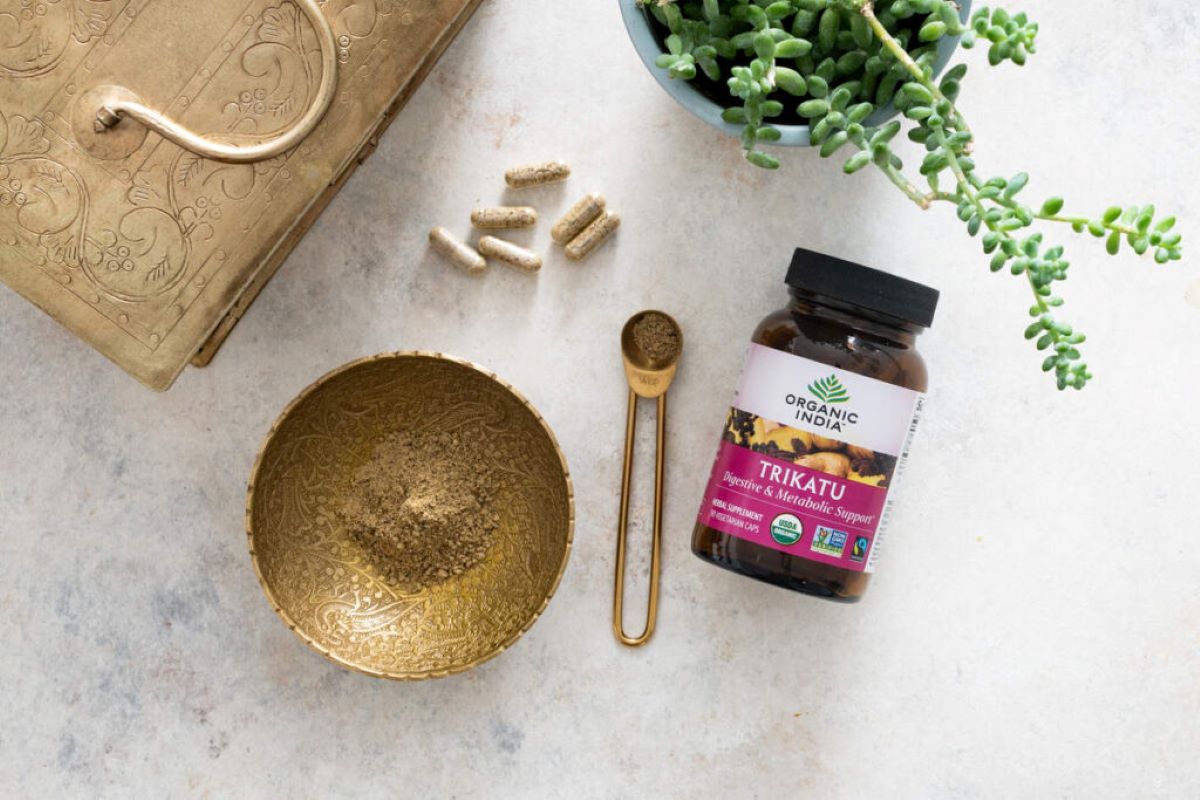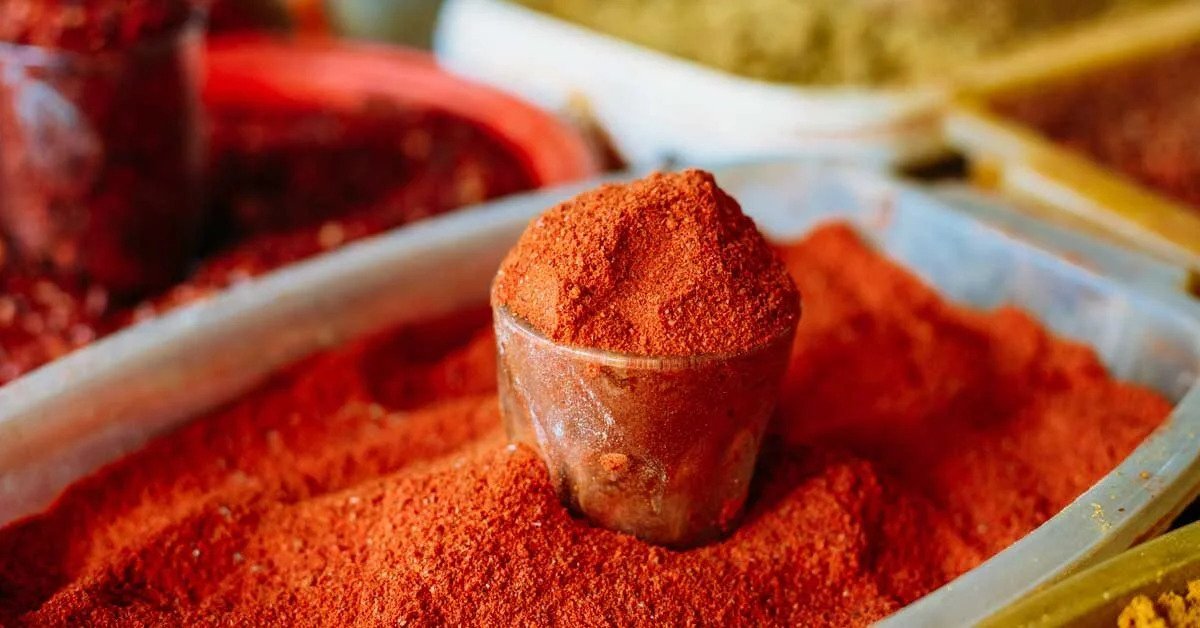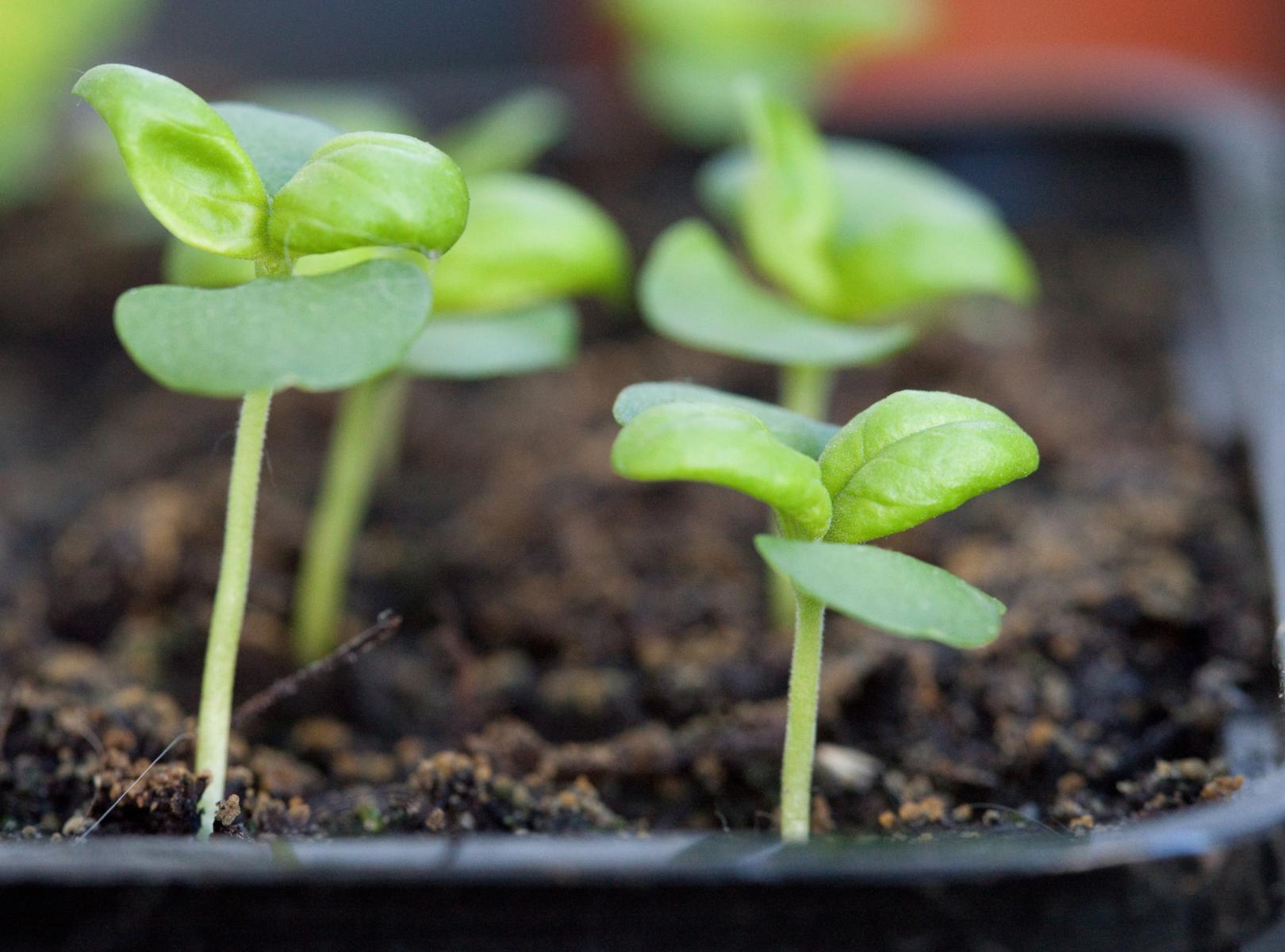Home>Gardening News and Trends>Gardening Trends>What Herbs Are Good For Colds
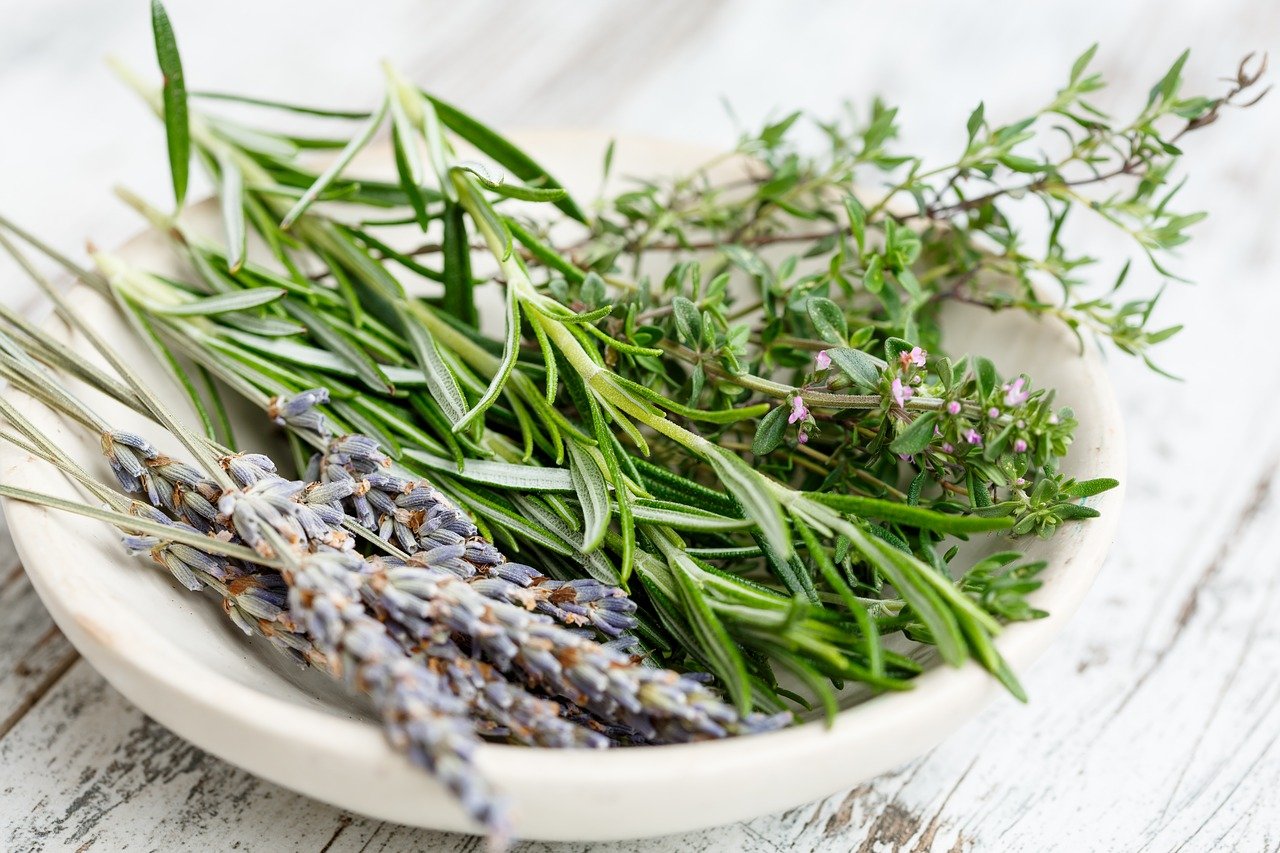

Gardening Trends
What Herbs Are Good For Colds
Published: September 28, 2023
Discover the latest gardening trends and learn about the best herbs to fight colds. Improve your health naturally with these powerful botanical remedies.
(Many of the links in this article redirect to a specific reviewed product. Your purchase of these products through affiliate links helps to generate commission for Chicagolandgardening.com, at no extra cost. Learn more)
Table of Contents
Introduction
Gardening trends have seen a significant shift towards not only growing beautiful plants but also cultivating herbs that offer numerous health benefits. Whether you are a novice gardener or an experienced green thumb, incorporating medicinal herbs into your garden can enhance both the aesthetics and functionality of your outdoor space.
Herbs have been used for centuries for their healing properties, particularly when it comes to treating common ailments like colds. In this article, we will explore some of the top herbs that are known for their effectiveness in soothing cold symptoms and boosting the immune system.
By harnessing the power of nature and growing these herbs in your own garden, you can have a readily available supply of natural remedies to combat colds and flu, all while adding beauty and fragrance to your landscape.
As with any natural remedy, it’s important to consult with a healthcare professional before incorporating herbs into your wellness routine to ensure they are safe and suitable for you. However, many of these herbs have been widely studied and have shown promising results in supporting overall health and well-being.
Let’s dive into the wonderful world of herbal remedies for colds and explore the benefits of some of natures’ most powerful healing plants.
Echinacea
Echinacea, also known as the purple coneflower, is a popular herb known for its immune-boosting properties. It has long been used in traditional Native American medicine to treat various ailments, including colds and respiratory infections.
This herb contains compounds that stimulate the production of white blood cells, which play a crucial role in fighting off infections. It is also rich in antioxidants, which can help protect the body against oxidative stress and inflammation.
Studies have shown that Echinacea can reduce the severity and duration of cold symptoms. It may help alleviate symptoms such as sore throat, cough, and nasal congestion. Some research suggests that Echinacea may even help prevent the onset of a cold if taken at the first sign of symptoms.
To incorporate Echinacea into your garden, sow the seeds in well-drained soil in a sunny location. The plant requires minimal maintenance and can thrive in a variety of climates. Harvest the flower petals and root of the plant for medicinal use.
Echinacea is available in various forms, including dried herbs, tinctures, and supplements. Follow the recommended dosage instructions provided by the manufacturer or consult with a healthcare professional for guidance.
While Echinacea is generally considered safe for short-term use, it is important to note that prolonged or excessive use may reduce its effectiveness. Additionally, individuals with certain medical conditions or taking certain medications should exercise caution and consult a healthcare professional before using Echinacea.
By including Echinacea in your garden, you can have a natural remedy on hand to combat cold symptoms and support a healthy immune system during the winter months.
Elderberry
Elderberry, scientifically known as Sambucus, is a flowering plant that has been used for centuries as a natural remedy for colds and flu. The berries of the elderberry plant are packed with antioxidants, vitamins, and minerals that can help boost the immune system and fight off viral infections.
Research has shown that elderberry extract can reduce the severity and duration of cold symptoms. It contains compounds that can inhibit the replication of the influenza virus, which is often responsible for respiratory infections.
In addition to its antiviral properties, elderberry is also rich in flavonoids, which have powerful antioxidant effects. These antioxidants can help protect cells from damage caused by free radicals and reduce inflammation in the body.
To grow elderberries, choose a sunny location with well-drained soil. The plant is hardy and can tolerate a wide range of conditions. It is recommended to plant at least two elderberry bushes to ensure proper pollination and fruit production.
Harvest the dark purple berries when they are fully ripe. Be sure to remove the stems and leaves before using them for medicinal purposes. You can make elderberry syrup or tea, or purchase elderberry supplements from health food stores.
It’s important to note that elderberries should never be consumed raw as they can cause digestive issues. Always cook the berries before consuming or using them in any form.
Elderberry supplements and syrups are generally safe for most individuals to take, but it’s always advisable to consult with a healthcare professional, especially if you have any underlying medical conditions or are taking other medications.
By growing elderberries in your garden and incorporating them into your wellness routine, you can harness the power of this potent herb to support your immune system and combat colds and flu naturally.
Ginger
Ginger, known for its distinct spicy flavor and aromatic properties, is not only a staple in the kitchen but also a powerful herb for cold relief. This root has been used for centuries in traditional medicine to treat a variety of ailments, including colds and sore throats.
Ginger contains bioactive compounds that have anti-inflammatory and antioxidant effects, making it an excellent herb for boosting the immune system. It also has antimicrobial properties that can help fight off infection-causing bacteria and viruses.
One of the key components of ginger is gingerol, which has been shown to have anti-inflammatory effects. This can be particularly beneficial in relieving symptoms such as sore throat and cough associated with colds.
In addition to its immune-boosting properties, ginger can also help alleviate nausea and improve digestion, which can be helpful when dealing with cold-related stomach issues.
Growing ginger in your garden may not be feasible in all climates, but you can still enjoy its benefits by purchasing fresh ginger root from the grocery store or using powdered ginger. Incorporate it into your cooking, or steep it in hot water to make a soothing ginger tea.
If you prefer a more concentrated form, ginger supplements and herbal tinctures are widely available. However, it’s important to follow the recommended dosage instructions and consult with a healthcare professional, especially if you have any underlying medical conditions or are taking other medications.
Whether consumed as a tea, added to meals, or taken in supplement form, ginger offers a natural and effective way to alleviate cold symptoms and support overall well-being.
Garlic
Garlic is not only a popular culinary ingredient but also a potent herb with impressive medicinal properties. It has been used for centuries in various cultures for its immune-boosting and healing effects.
Garlic contains a compound called allicin, which is responsible for its strong aroma and many of its health benefits. Allicin has antimicrobial properties, making garlic a powerful herb for fighting off viral and bacterial infections.
Research has shown that garlic can help reduce the severity and duration of cold symptoms. It can also help alleviate congestion, cough, and sore throat. Garlic’s natural antiviral properties can also help prevent the onset of colds when consumed regularly.
To enjoy the benefits of garlic, you can easily grow it in your garden or purchase fresh garlic bulbs from the grocery store. Plant the cloves in well-drained soil and make sure they receive adequate sunlight. Garlic is a low-maintenance plant and can be harvested when the leaves turn yellow and begin to dry out.
You can incorporate garlic into your meals by mincing or crushing the cloves and adding them to your dishes. It can also be consumed raw or made into a garlic-infused oil or tea. However, keep in mind that cooking garlic can reduce some of its medicinal properties, so consuming it raw or lightly cooked may offer the most benefits.
If you prefer a more convenient option, garlic supplements and capsules are available in health food stores. It is advisable to consult with a healthcare professional for appropriate dosage guidelines and any potential interactions with other medications.
By including garlic in your daily diet or supplementing with it, you can tap into its immune-supporting properties and help combat colds and infections naturally.
Eucalyptus
Eucalyptus, known for its refreshing scent and medicinal properties, is a versatile herb that can provide relief from respiratory symptoms associated with colds and congestion.
The leaves of the eucalyptus tree contain a compound called eucalyptol, which has shown to have anti-inflammatory and decongestant effects. When inhaled, eucalyptus can help open up the airways, soothe coughs, and alleviate nasal congestion.
Eucalyptus oil, extracted from the leaves, is commonly used in vapor rubs and steam inhalations to provide relief from cold symptoms. The oil is rich in antimicrobial properties, which can help fight off bacteria and viruses, aiding in the recovery process.
If you have the space and climate for it, growing a eucalyptus tree in your garden can be a rewarding experience. However, keep in mind that some species of eucalyptus can grow quite large, so make sure to choose a suitable variety for your space. Harvest the leaves and crush them to release the essential oil, which can then be used in DIY remedies.
If growing eucalyptus is not feasible, you can still enjoy its benefits by using eucalyptus oil. Add a few drops to a bowl of hot water, place a towel over your head, and inhale the steam. This can help clear congestion and provide relief from sinus discomfort.
Eucalyptus oil can also be added to a carrier oil, such as coconut or olive oil, and used for chest rubs. Gently massage the oil onto your chest to help ease coughs and promote better breathing.
As with any essential oil, it’s important to use caution and ensure proper dilution before topical application. If using eucalyptus oil on children or those with sensitive skin, it’s advisable to consult with a healthcare professional.
Whether enjoyed through its invigorating scent or used topically, eucalyptus offers a natural and effective way to relieve respiratory discomfort caused by colds and congestion.
Peppermint
Peppermint, with its refreshing aroma and cooling sensation, is not only a delightful herb to grow in your garden but also a powerful remedy for cold symptoms. Peppermint contains menthol, which has soothing and decongestant properties, making it effective in relieving nasal congestion and cough associated with colds.
Inhaling the steam from steeped peppermint leaves or using peppermint oil can help clear the nasal passages, relieve sinus pressure, and promote easier breathing. The menthol in peppermint acts as a natural expectorant, helping to expel mucus and alleviate coughing.
Peppermint also has antimicrobial properties, which can help fight off cold-causing viruses and bacteria. The herb’s natural analgesic properties may also help soothe a sore throat.
You can easily grow peppermint in your garden, but be cautious as it can spread quickly. Plant it in a container or a designated area to prevent it from taking over your garden. Harvest the leaves as needed and dry them for future use in teas or homemade remedies.
To make peppermint tea, steep a handful of fresh or dried peppermint leaves in hot water for 5-10 minutes. Add honey or lemon for additional soothing benefits. Sipping on this herbal tea can provide relief from congestion and throat irritation.
Peppermint oil can also be used topically. Dilute a few drops of peppermint oil with a carrier oil, such as almond or coconut oil, and gently massage it onto the chest or throat area. The cooling sensation can help ease coughs and alleviate discomfort.
It’s important to note that peppermint oil should not be used on children, especially infants, as it can cause respiratory distress. Always consult with a healthcare professional before using any herbal remedies, especially on children or individuals with specific health conditions.
By growing peppermint in your garden or using its leaves and oil, you can harness its decongestant and soothing properties to find relief from cold symptoms naturally.
Chamomile
Chamomile, renowned for its calming and soothing properties, is not only a popular herbal tea but also a remedy for colds and respiratory ailments. Chamomile has been used for centuries as a traditional medicine due to its anti-inflammatory, antibacterial, and immune-boosting effects.
When consumed as a tea, chamomile can help relieve symptoms associated with colds, such as sore throat and cough. The herb’s natural anti-inflammatory properties can also help reduce nasal congestion and ease breathing difficulties.
Chamomile contains compounds like chamazulene and bisabolol, which have antiviral and antibacterial properties, making it effective in fighting off infections that can lead to colds.
Growing chamomile in your garden is relatively easy, as it can thrive in various soil conditions and requires minimal maintenance. Harvest the flowers when they are fully open and dry them to make chamomile tea or use them in herbal remedies.
To make chamomile tea, steep a teaspoon of dried chamomile flowers in hot water for 5-10 minutes. You can add honey or lemon for additional soothing benefits. Drinking chamomile tea can help promote relaxation, reduce inflammation, and provide relief from cold symptoms.
Chamomile is generally safe for most individuals, but it’s advisable to exercise caution if you have known allergies to plants in the daisy family. Additionally, if you are pregnant or breastfeeding, it’s best to consult with a healthcare professional before consuming chamomile tea or using chamomile oil.
Chamomile oil can be used topically for its soothing and calming effects. Dilute a few drops of chamomile oil with a carrier oil and massage it onto the chest and throat area to alleviate coughs and respiratory discomfort.
By incorporating chamomile into your garden and enjoying its tea or oil, you can tap into its healing properties and find relief from cold symptoms, all while promoting relaxation and well-being.
Thyme
Thyme is not only a versatile culinary herb but also a powerful plant known for its medicinal properties. It contains compounds such as thymol and carvacrol, which have antimicrobial and expectorant effects, making it an excellent herb for treating respiratory conditions, including colds.
Thyme has long been used in traditional medicine to relieve coughs, congestion, and sore throat. Its antimicrobial properties help fight off bacteria and viruses, while its expectorant properties help loosen mucus and phlegm, making it easier to expel.
Growing thyme in your garden is a great way to have this herb readily available for medicinal use. Thyme plants are hardy and can thrive in various climates with well-drained soil and ample sunshine. Harvest the leaves as needed and dry them for future use.
To make thyme tea, steep a few sprigs of fresh or dried thyme in hot water for 10-15 minutes. You can add honey or lemon to enhance the taste and soothing effects. Drinking thyme tea can help alleviate congestion, soothe a sore throat, and promote respiratory health.
Thyme essential oil is also commonly used for its medicinal properties. It can be added to a carrier oil, such as coconut or almond oil, and used for chest rubs to relieve coughs and congestion. However, be sure to dilute the essential oil properly and consult with a healthcare professional if you have any concerns or specific health conditions.
It’s important to note that while thyme is generally safe, individuals with allergies to plants in the mint family may experience reactions to thyme. Additionally, pregnant or breastfeeding women should exercise caution and seek medical advice before using thyme as a remedy.
By growing thyme in your garden and incorporating it into your wellness routine, you can harness its antimicrobial and expectorant properties to find relief from cold symptoms naturally while enjoying the wonderful flavor it adds to your meals.
Conclusion
Gardening trends have shown a growing interest in cultivating herbs for both their aesthetic appeal and their potential health benefits. Incorporating these medicinal herbs into your garden can offer a natural and accessible way to combat cold symptoms and boost your immune system.
From the immune-boosting properties of Echinacea and elderberry to the soothing effects of ginger and chamomile, these herbs have long been used in traditional medicine to alleviate cold-related symptoms such as sore throat, cough, congestion, and fatigue.
Whether you choose to grow these herbs in your garden or purchase them from the store, there are various ways to incorporate them into your daily routine. Enjoy them as a comforting cup of herbal tea, use them in homemade remedies such as chest rubs or steam inhalations, or take them in the form of supplements or tinctures.
It’s important to note that while these herbs are generally safe for most individuals, it’s always advisable to consult with a healthcare professional, especially if you have any underlying medical conditions or are taking other medications.
Nature has provided us with a wealth of healing herbs that can support our overall well-being and help fight off common colds. By exploring and harnessing the power of these herbs in our gardens, we can take charge of our health in a natural and sustainable way.
So, whether you’re a seasoned gardener or just starting out, consider adding these medicinal herbs to your garden and take a step towards a healthier, more resilient you.
